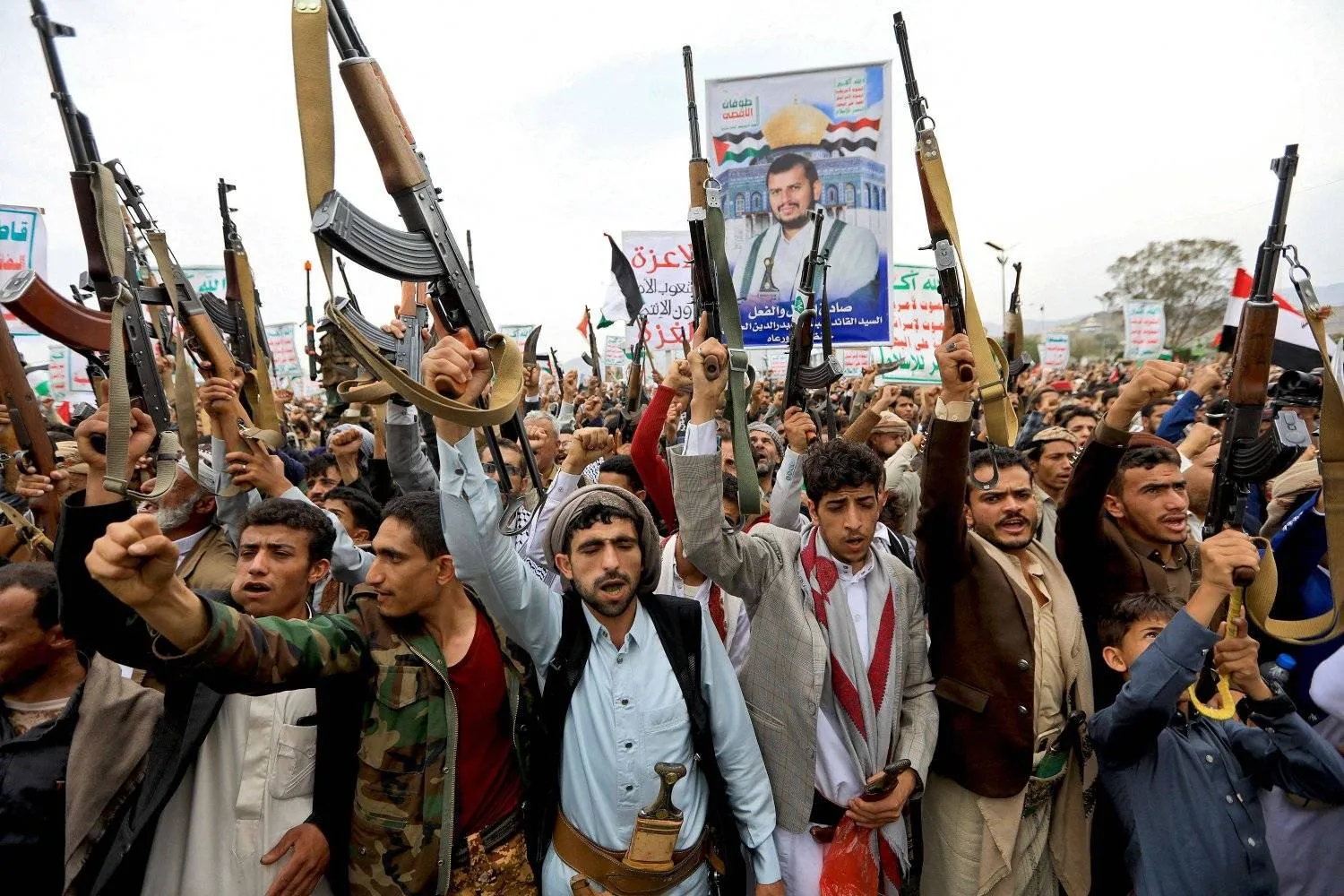Sources familiar with the situation in the Houthi-run Yemeni capital, Sanaa, report that Iranian Revolutionary Guard representatives have strengthened their control over all Houthi military and intelligence units, now exercising authority over all decisions.
Concurrently, they are forming sectarian-aligned combat units similar to those found in Iran.
Speaking to Asharq Al-Awsat under conditions of anonymity, the sources clarified that recent arrest operations by Houthis were supervised by Revolutionary Guard elements.
The recent wave of arrests targeted numerous UN and international humanitarian staff, along with former US embassy employees.
It also marked the first time that members from the Houthi group itself were included.
Sources indicate a purge within Houthi intelligence, known as the “Security and Intelligence Apparatus,” and the internal “Preventive Security,” aiming to remove disloyal or ideologically questionable individuals from key administrative, security, and military positions, even within the Houthi ranks.
During the takeover of Sanaa, Houthis enlisted non-ideological personnel who had previously worked in government institutions or local and international organizations.
However, sources confirm that their role is now obsolete.
According to sources, some Houthi members who had served the insurgency for years are now being excluded.
Reasons cited include not being from Saada province or being deemed disloyal to Abdul-Malik al-Houthi’s leadership or suspicious of their sectarian beliefs.
Yemeni sources also revealed that Iranian Revolutionary Guard units, who previously controlled military operations, especially regarding ballistic missiles and drone production facilities, have recently expanded their influence to dominate the entire Houthi security scene.
These units allegedly exploited the Israeli conflict in Gaza to instruct the Houthis to recruit thousands of teenagers from summer camps and sectarian schools, along with graduates of cultural programs.
They were misled into believing they were being trained to fight in Palestine.
According to sources, the purpose of this operation is to create military units modeled after Iran’s Revolutionary Guard. These units would swear absolute loyalty to the Houthi leader, viewing him as the chosen ruler by divine mandate.
Yemen Accuses Iran’s Revolutionary Guard of Managing Houthi Military, Security Units

The Houthis exploited the war in Gaza to recruit tens of thousands of fighters (AFP)

Yemen Accuses Iran’s Revolutionary Guard of Managing Houthi Military, Security Units

The Houthis exploited the war in Gaza to recruit tens of thousands of fighters (AFP)
لم تشترك بعد
انشئ حساباً خاصاً بك لتحصل على أخبار مخصصة لك ولتتمتع بخاصية حفظ المقالات وتتلقى نشراتنا البريدية المتنوعة







